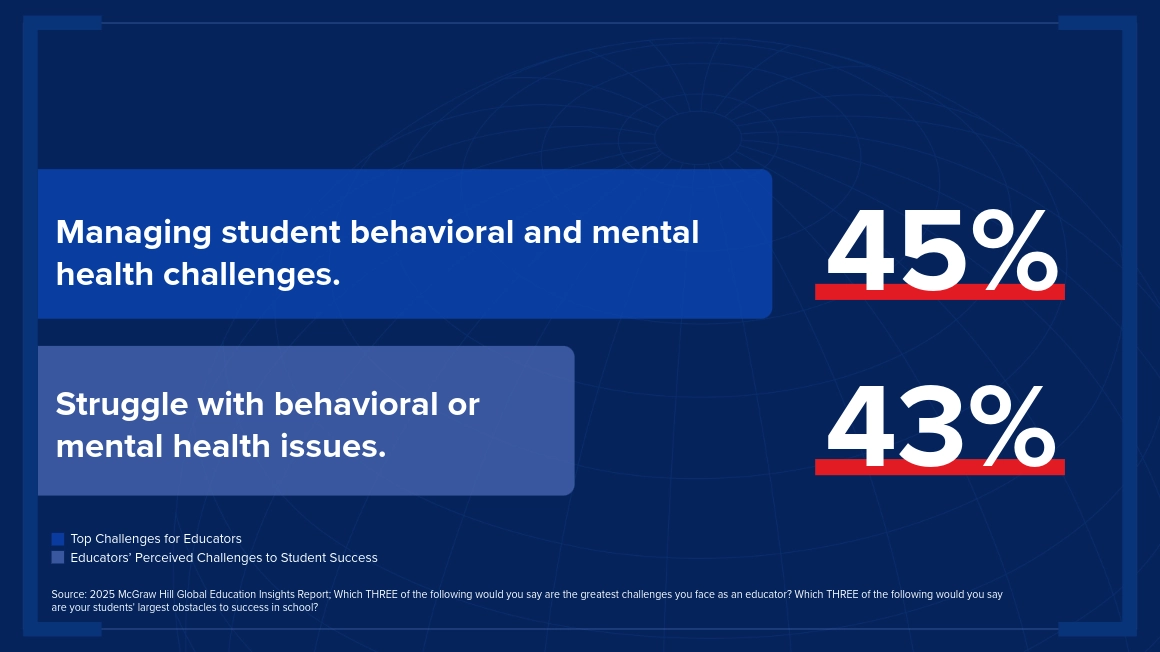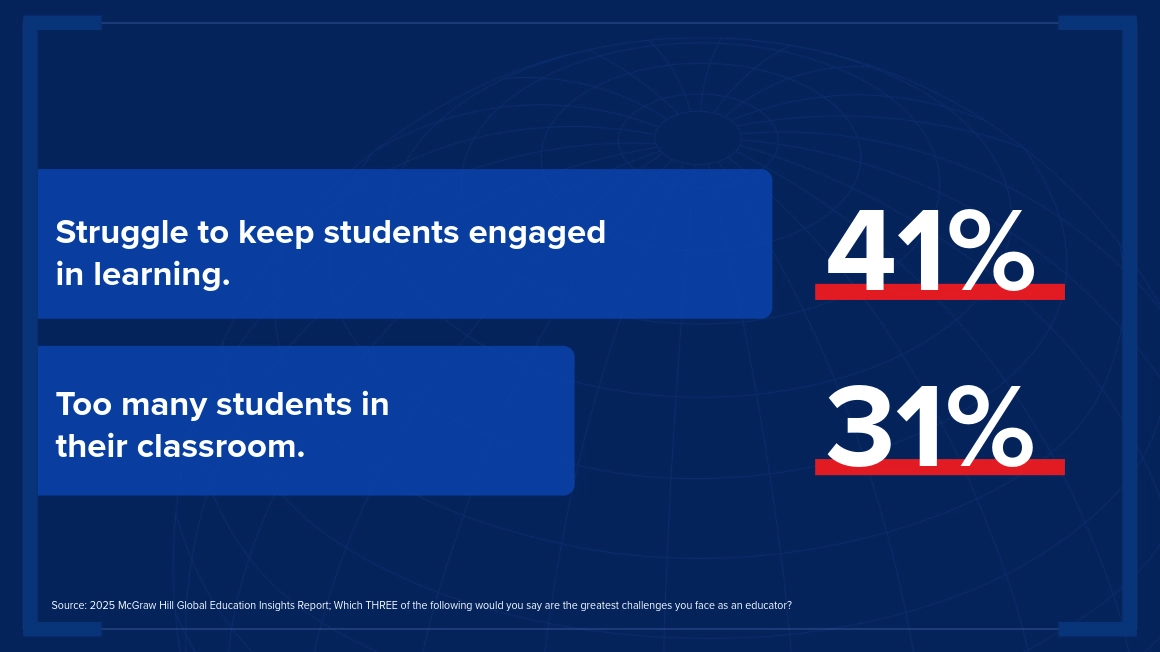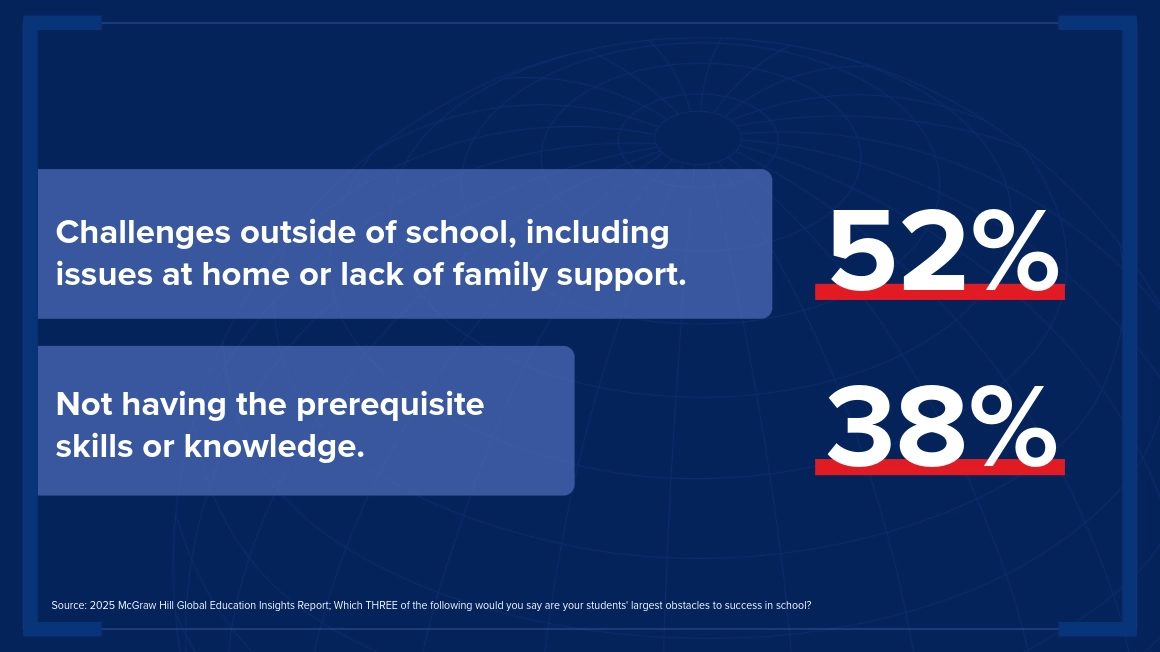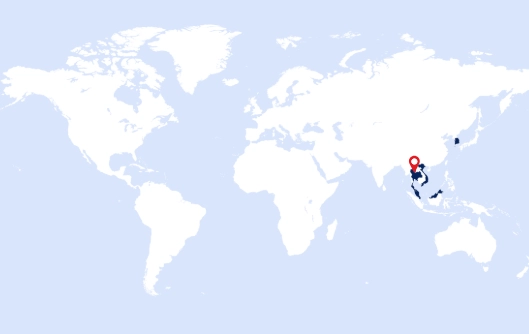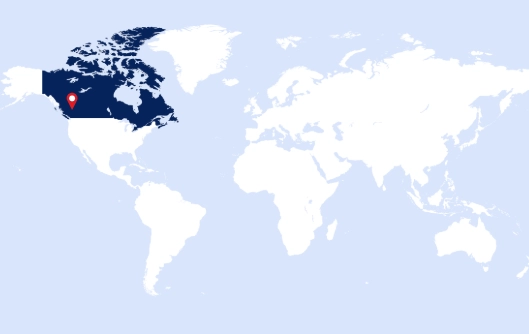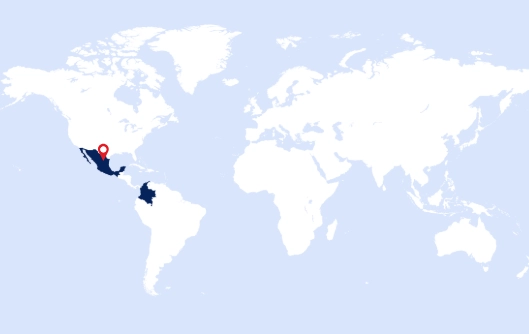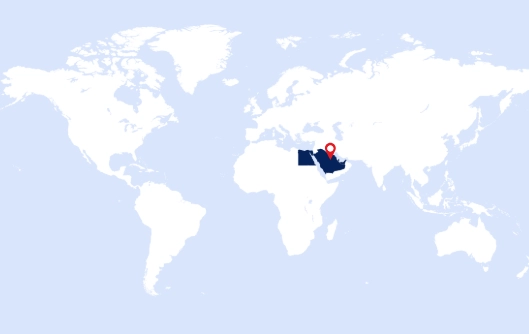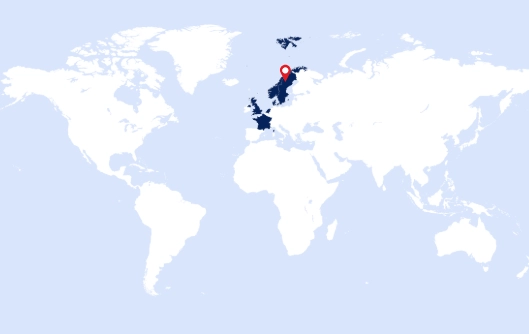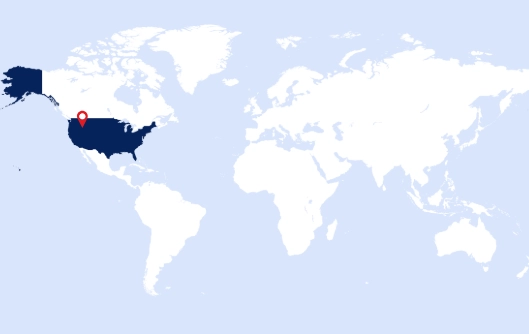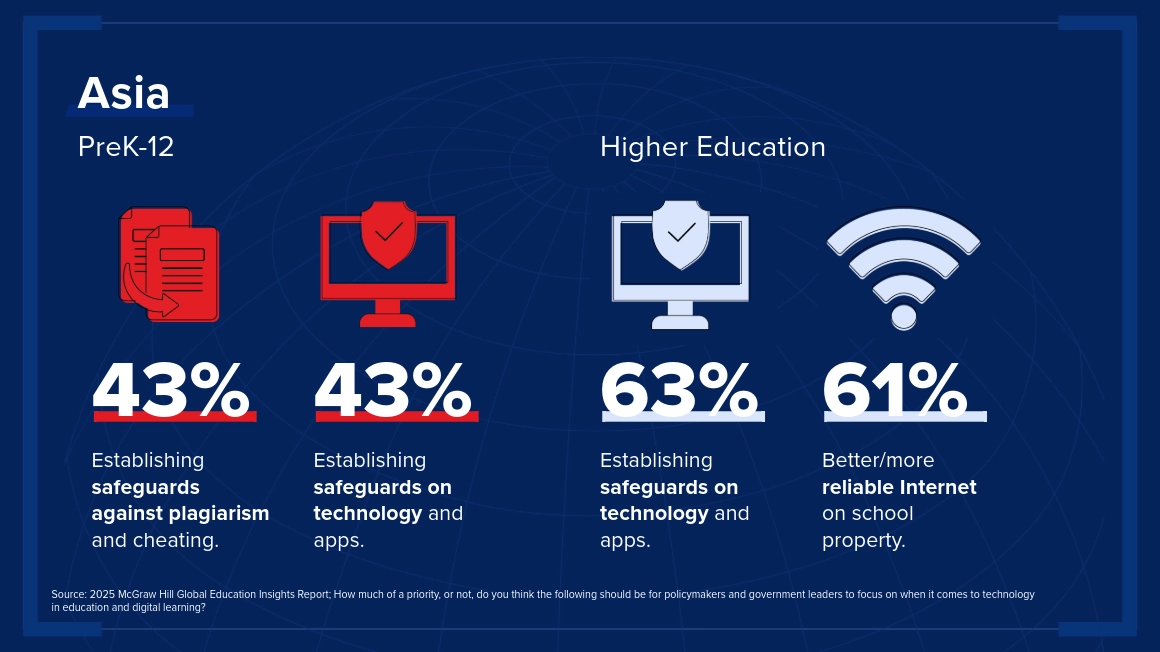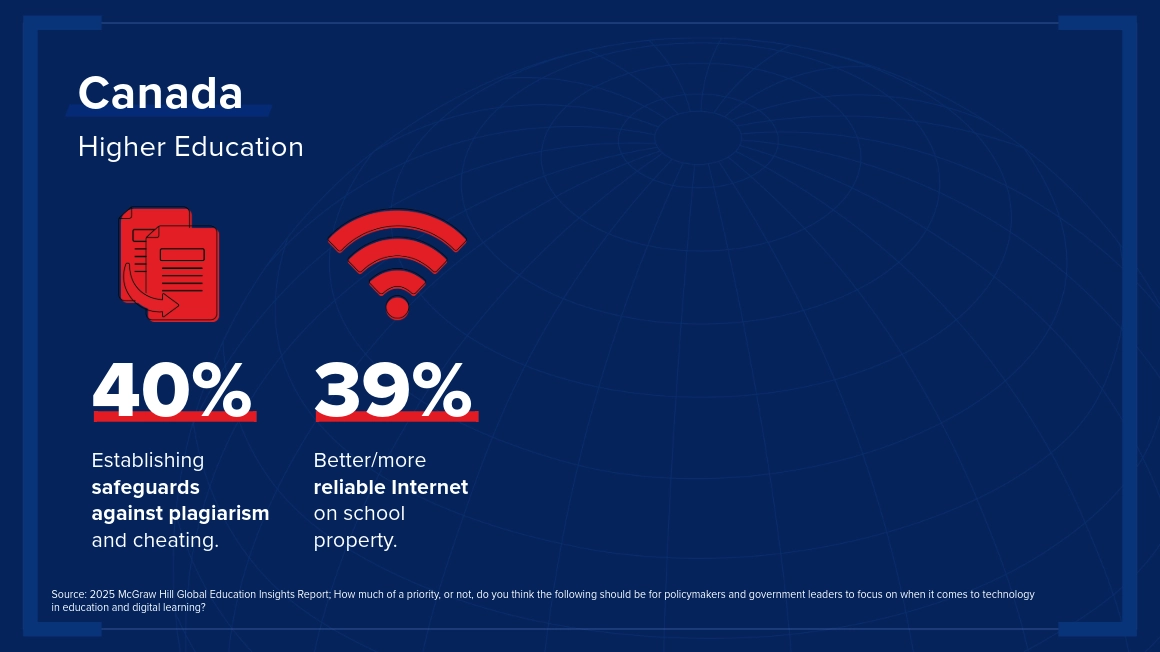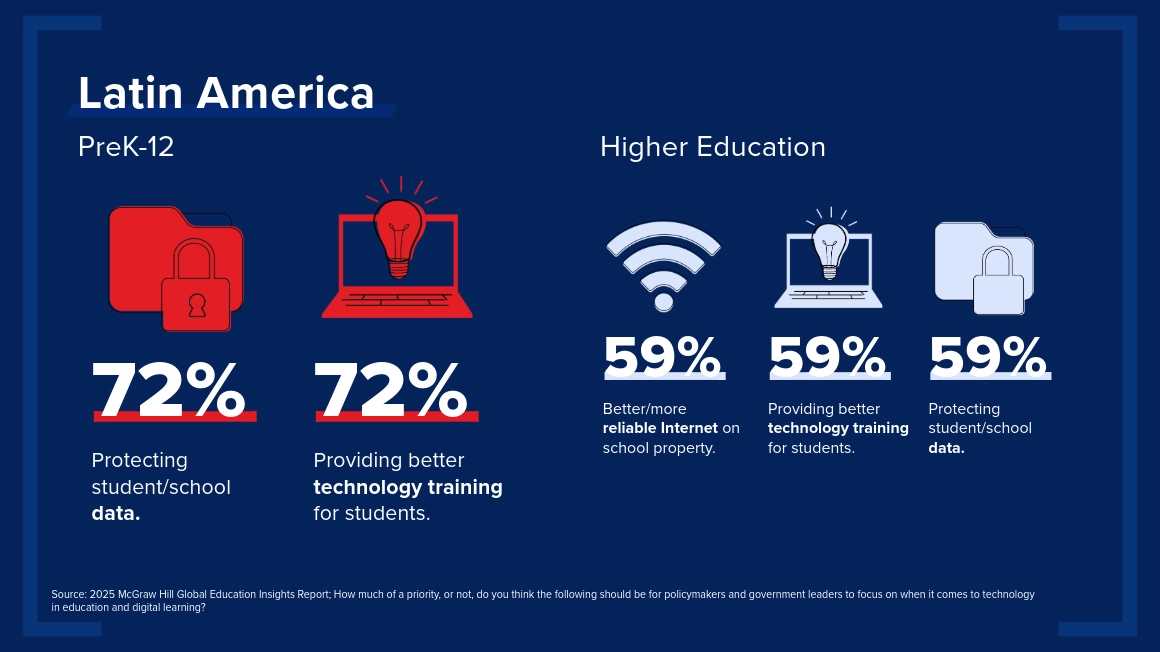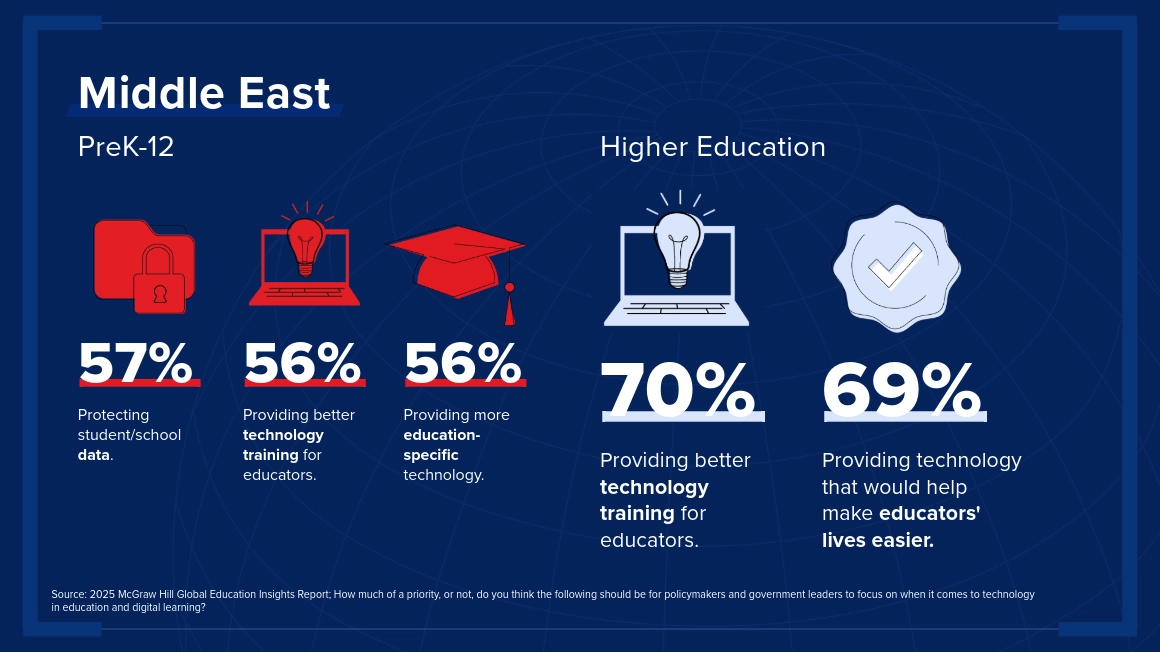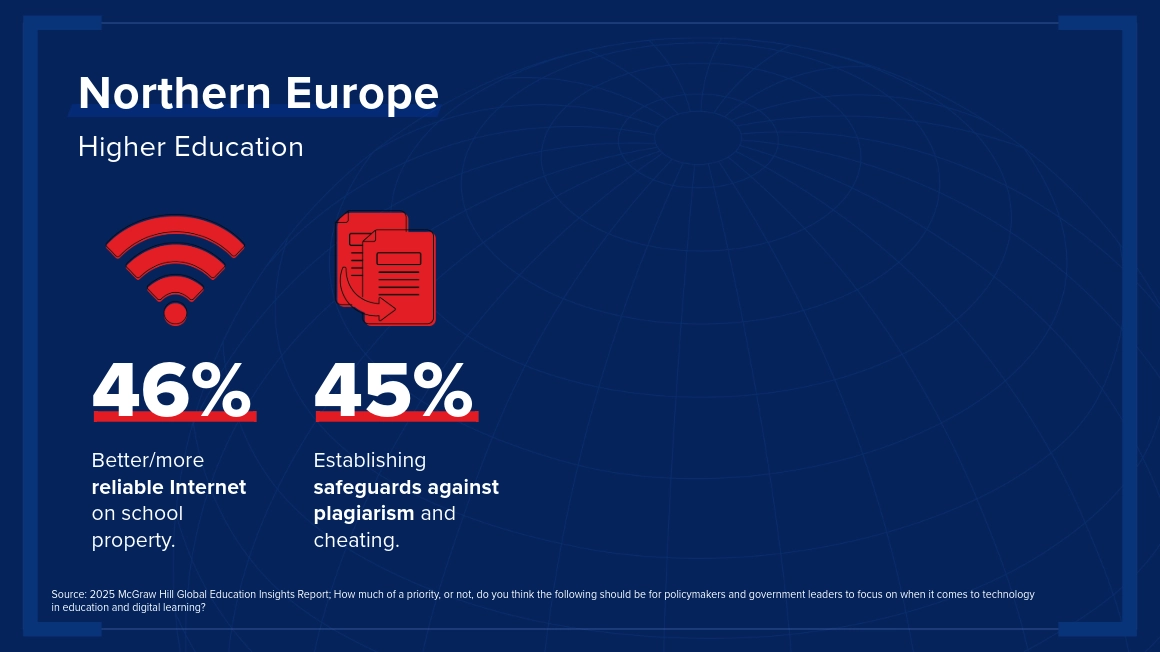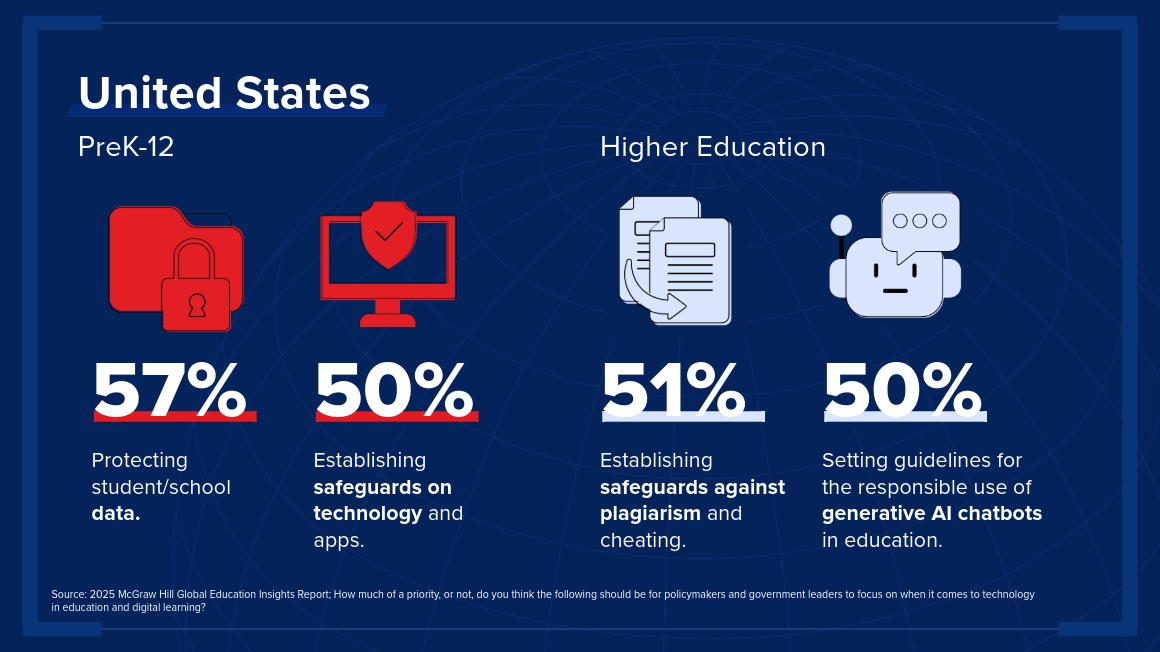My Account Details
McGraw Hill Global Education
Insights Report
Challenges, Opportunities, and the Future of Education in the Age of AI
In 2024, McGraw Hill released a unique report that captured the voices of educators from across PreK-12 and higher education around the world. The McGraw Hill Global Education Insights Report, the result of a survey conducted by Morning Consult on McGraw Hill’s behalf, revealed the biggest challenges educators face – and offered some possible solutions.
If we’re serious about improving educational opportunity and outcomes for all, it’s crucial that we listen to what educators are saying. In our 2025 report, educators have a clear message:
The biggest challenges in education are not going to be solved by AI.


Mental and Behavioral Challenges Are a Top Obstacle for Students, Educators
Like last year, the top obstacles to both students and educators are societal issues like mental health struggles and lack of family support, as well as academic issues like lack of preparation and student engagement.
Explore the graphs below to see what educators say are their biggest challenges and what they believe to be the top barriers to their students’ experience.
Can AI help students in the areas that most concern educators?
Educators appear to be skeptical. They see greater potential for AI to help students improve grades and test scores or to automate language translation, but see the least potential for AI to support students’ development of mental health and behavioral skills.


When it comes to areas in which AI can have a positive impact on educators, the potential to save time on administrative work and avoid burnout are top ranked, in addition to personalization of learning. The potential for AI to improve soft skills ranks lower.
Explore the map to identify the top and bottom opportunities for AI by region. (Refer to the footer of the report for the list of surveyed countries.)
Globally, over three-quarters of educators said AI could replace only some of their job. But which parts of their work do they think are most automatable?
Hint: It’s not what addresses their areas of greatest concern to student or instructor success.

"While I am most optimistic about efficiency gains AI provides for both students and instructors, we need to ensure that we use the time that AI ‘gives’ us to great effect -- more personal interactions to ensure that new generations of students are even more capable than before, rather than less capable by leaving everything to AI."
- Bo van der Rhee
Professor of Operations Management, Nyenrode Business University (The Netherlands)

59%
of educators say GenAI has helped them save time.
Among those saying that GenAI saved them time, the median time savings was
3-5 hours per week.
Educators from around the world shared their top priorities for policymakers when it comes to technology in education. Globally, protection of student/school data, and establishing safeguards against plagiarism and cheating were the top two.
Select a region to learn more about the areas educators said policymakers should be prioritizing.
Download Regional Variations of the 2025 McGraw Hill Global Education Insights Report
Ideas and Insights about AI from McGraw Hill
Check out these articles to learn more about our approach to Artificial Intelligence.
- Something went wrong loading this content.
Morning Consult conducted global research across six regions via online panel interviewing, collecting responses from 556 PreK-12 educators and 749 Higher Education instructors from 11/22/24-1/3/25, on behalf of McGraw Hill. Countries surveyed include the United States, Canada, Mexico, Colombia, United Arab Emirates, Saudi Arabia, Egypt, Qatar, Vietnam, Republic of Korea, Singapore, Malaysia, Thailand, United Kingdom, Norway, Sweden, Denmark, France, and the Netherlands. Only the countries fielded in this research are represented in the global data, and data is not weighted to account for population size or prevalence of PreK-12/Higher Ed teachers in each country, with some countries having a greater contribution than others due to differences in sample sizes.
McGraw Hill is a leading global education company that partners with millions of educators, learners and professionals around the world. McGraw Hill has over 30 offices across North America, Asia, Australia, Europe, the Middle East and South America, and makes its learning solutions for PreK-12, higher education, professionals and others available in more than 80 languages.
Visit us at mheducation.com or find us on Facebook, Instagram, LinkedIn or X.
